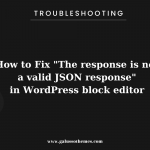
Source: https://unsplash.com/photos/black-and-white-robot-toy-on-red-wooden-table-zwd435-ewb4
Intro about ChatGPT, OpenAI and other AI tools for WordPress site
The landscape of AI-powered applications is rapidly evolving, with a dizzying array of options emerging to assist users with all sorts of tasks. From natural language processing to computer vision and beyond, the capabilities of these ai apps are constantly expanding.
One area that has seen particularly rapid growth is the availability of ChatGPT-powered tools. ChatGPT, the highly capable language model developed by OpenAI, has inspired the creation of countless apps that leverage its abilities to help users in innovative ways.
One such app that I’ve found particularly useful is the ChatGPT plugin for WordPress. This tool allows you to easily search across any WordPress site using ChatGPT’s natural language understanding. You can ask it questions, get summaries of content, and even have it generate new text – all without leaving your WordPress dashboard.
The plugin taps into the power of the best chat gpt app to provide contextual, relevant responses to your queries. Whether you’re looking for specific information on your site, need help drafting content, or want to explore your WordPress data in new ways, the ChatGPT plugin makes it simple.
Of course, the ChatGPT app is just one example of the many AI tools available. Across categories like productivity, creativity, analysis, and beyond, there is an AI solution for seemingly every need. The challenge is sifting through the options to find the ones that are the best fit for your particular use case and workflow.
To navigate this increasingly crowded landscape, it’s helpful to clearly define your requirements and priorities. Do you need an app that can handle complex mathematical computations? One that specializes in generating human-like text? Or perhaps you’re looking for a versatile tool that can assist with a wide range of tasks.
Consulting reviews, seeking recommendations from peers, and testing out demos can all help you identify the AI apps that are worth deeper exploration. And as this technology continues to evolve, the options will only continue to grow, giving users an ever-expanding set of powerful tools to choose from.
So whether you’re looking to boost your WordPress site’s capabilities, streamline your workflow, or simply explore the frontiers of artificial intelligence, the world of AI apps has something to offer. The key is finding the right fit for your needs – and with a little research, you’re sure to uncover the perfect solution.
Certainly, here are some other AI tools that can be quite useful for WordPress websites:
- Jasper AI for WordPress: This AI writing assistant can help you generate everything from blog post outlines to product descriptions, social media captions, and more directly within your WordPress dashboard. It uses advanced language models to produce human-sounding content.
- WP Cloudy: This plugin leverages computer vision AI to automatically generate image captions, tags, and alt text for the images on your WordPress site. This can save a lot of time and ensure your images are properly optimized for accessibility and SEO.
- Yoast SEO with AI: The popular Yoast SEO plugin now has an AI-powered content analysis feature. It can provide suggestions to improve your content’s readability, keyword optimization, and overall SEO quality.
- WP Respond: This AI chatbot plugin allows you to set up intelligent, conversational FAQs and customer service interactions right on your WordPress site. It can handle common customer queries without manual intervention.
- AI-Powered Translation: Plugins like Weglot and TranslatePress use machine translation AI to enable multilingual functionality on your WordPress site. This makes it easy to reach global audiences.
- AI Image Generation: Apps like DALL-E and Midjourney can integrate with WordPress to generate unique, AI-created images to complement your content. This is great for adding visual interest when original photography isn’t available.
The key is choosing the right AI tools that complement your specific WordPress use case, whether that’s content creation, SEO, customer experience, or something else. Testing out a few options and seeing which ones integrate best with your workflow can help you unlock the full potential of AI for your WordPress site.
How these various AI tools for WordPress can be leveraged to enhance your website

Source: https://unsplash.com/photos/person-holding-pencil-near-laptop-computer-5fNmWej4tAA
Content Creation and Optimization
The Jasper AI and Yoast SEO plugins are particularly powerful for content-focused WordPress sites. Jasper can assist with ideation, drafting, and polishing blog posts, product descriptions, and other site copy. Meanwhile, Yoast’s AI-powered content analysis provides insights to improve readability, keyword targeting, and overall SEO performance.
Media Management
Automating the tedious task of adding alt text and captions to images is a game-changer. The WP Cloudy plugin uses computer vision AI to generate this metadata automatically, saving you time while also ensuring accessibility compliance.
Customer Experience
AI chatbots like WP Respond can provide a scalable, 24/7 customer service experience on your WordPress site. They can handle common inquiries, schedule appointments, and even place orders – all without manual intervention from your team.
Multilingual Support
Plugins that leverage machine translation AI, like Weglot and TranslatePress, make it much easier to expand the reach of your WordPress site to international audiences. They can seamlessly translate content into multiple languages.
Visual Content Generation
For WordPress themes that rely heavily on imagery, AI image generation tools like DALL-E and Midjourney can be a game-changer. These allow you to create unique, custom visuals to complement your written content – no graphic design skills required.
The common thread here is that these AI-powered WordPress plugins and integrations can automate tedious tasks, improve content quality, enhance user experience, and unlock new creative possibilities – all while saving you time and effort. As the technology continues to advance, the potential applications for AI in the WordPress ecosystem will only continue to grow.
The key is identifying the specific pain points or opportunities within your WordPress site, and then exploring the AI tools that are best suited to address them. With a little experimentation, you’re sure to find the perfect AI-powered solutions to take your website to new heights.
Important limitations and potential drawback from AI Tools

Source: https://unsplash.com/photos/text-QGgKtX6VMGw
While AI tools can provide tremendous value for WordPress sites, there are certainly some important limitations and potential drawbacks to be aware of:
Accuracy and Reliability Concerns
Many AI models, including those powering chatbots, content generation, and translation, still have room for improvement when it comes to accuracy and reliability. There is always a risk of the AI generating incorrect information, nonsensical text, or poor-quality translations. This could lead to real problems if these AI outputs are published directly on a live website.
Lack of Human Oversight
Over-reliance on AI without adequate human oversight can be risky. AI tools should be used to augment and enhance your WordPress workflows, not replace human judgment entirely. It’s critical to have a human in the loop to review and approve AI-generated content, media, or other outputs before publishing.
Privacy and Security Risks
Integrating AI tools, especially those that require sharing data, can potentially introduce new security and privacy vulnerabilities on your WordPress site. You’ll need to carefully vet any AI plugins or services to ensure they have robust security measures in place and are compliant with data protection regulations.
Brand Voice and Consistency
AI-generated content, while impressive, may not always align perfectly with your brand’s unique voice and tone. Careful fine-tuning and customization of the AI models may be required to ensure consistency across all content published on your WordPress site.
Cost and Complexity
Many advanced AI tools come with a price tag, and the more sophisticated the capabilities, the more expensive they tend to be. There’s also a learning curve to effectively implement and manage AI integrations within your WordPress ecosystem.
The key is to approach AI tooling with a balanced, cautious mindset. Leverage the power of these technologies where they can provide tangible benefits, but always maintain a level of human oversight and quality control. With the right strategy and implementation, the upsides of AI-powered WordPress tools can far outweigh the potential downsides.
Summary and security for your WordPress site when you use AI tools
Ensuring the security and privacy of your WordPress site is critical, especially when integrating AI tools that may require access to your data. Here are some key steps you can take:
- Vet AI Providers Thoroughly: When evaluating any AI plugin or service for your WordPress site, do extensive research on the vendor’s security practices, data handling policies, and compliance with relevant regulations like GDPR. Only work with reputable providers with a proven track record.
- Review Privacy Policies and Data Sharing: Carefully review the privacy policy and terms of service for any AI tool you’re considering. Understand exactly what data the tool will be accessing and how it will be used, stored, and secured.
- Limit Data Sharing: Try to minimize the amount of sensitive data you share with AI tools. For example, you may want to avoid sending customer payment information or other personally identifiable data to an AI chatbot. Stick to the minimum required data.
- Implement Access Controls: Make sure any AI integrations on your WordPress site are properly configured with role-based access controls. Limit access to only the users and permissions that are absolutely necessary.
- Keep AI Tools Updated: Just like your core WordPress installation and other plugins, it’s crucial to keep your AI tools updated to the latest versions. This ensures you receive the latest security patches and bug fixes.
- Monitor Activity and Logs: Regularly review the activity logs for your AI-powered WordPress plugins and services. This can help you detect any suspicious behavior or potential security breaches early on.
- Have a Backup and Recovery Plan: Ensure you have a comprehensive backup strategy in place for your entire WordPress site. This will allow you to quickly restore your site in the event of an issue related to an AI integration.
- Consider On-Premises Solutions: For maximum control and security, explore AI tools that can be self-hosted on your own WordPress infrastructure, rather than relying on third-party cloud services.
By following these best practices, you can mitigate the security and privacy risks associated with integrating AI into your WordPress site. The key is to always maintain a careful, risk-aware approach when introducing new technologies.








![The step-by-step instructions for how WordPress users can resolve the "[Security Alert]: Polyfill.io Issue" for the Google Maps Platform Polyfill-attacks](https://galussothemes.com/wp-content/uploads/2024/06/Polyfill-attacks-150x150.jpeg)



